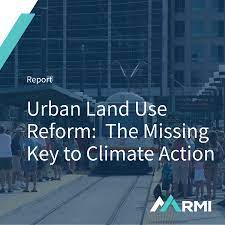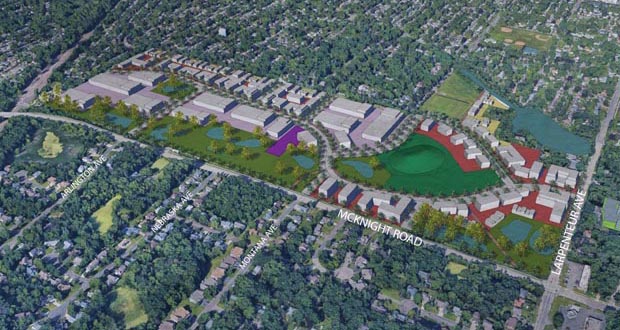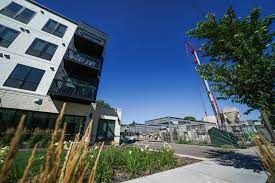
New REPORT from RMI March 2023
Urban Land Use Reform The Missing Key to Climate Action Strategies for Lowering Emissions, Increasing Housing Supply, and Conserving Land https://rmi.org/insight/urban-land-use-reform
For over a century, discriminatory land use and housing policies in the United States have segregated neighborhoods and engineered entire cities around single-family homes and personally owned automobiles. These policies have led to a chronic housing shortage, numerous harms for disadvantaged communities, and sprawling development patterns that exacerbate climate change and ecological harm.
These policies have also led to more and more driving as we live farther away from one another and our workplaces, grocery stores, schools, and green spaces. This has caused transportation to become the single largest carbon-emitting sector in the United States. To meet our global climate goals, we need to reduce transportation emissions by 45 percent by 2030. This requires both putting 70 million electric vehicles on the road and reducing how many miles we drive (also known as vehicle miles traveled) by 20 percent per capita over the next seven years.

In this report, RMI analyzes the potential for land use reforms to achieve significant emissions reductions, focusing on three fast-growing US metropolitan areas: Austin, Texas; Charlotte, North Carolina; and Denver, Colorado. Land use reforms can reduce emissions by:
- Shortening distances between housing and people’s daily needs;

- Reducing building energy use and water consumption by allowing attached and multifamily housing types, as well as integrating them with denser commercial buildings in compact urban forms; and
- Curbing sprawl and preserving land to serve other needs and functions such as farming, forestry, wilderness conservation, and carbon sequestration.
